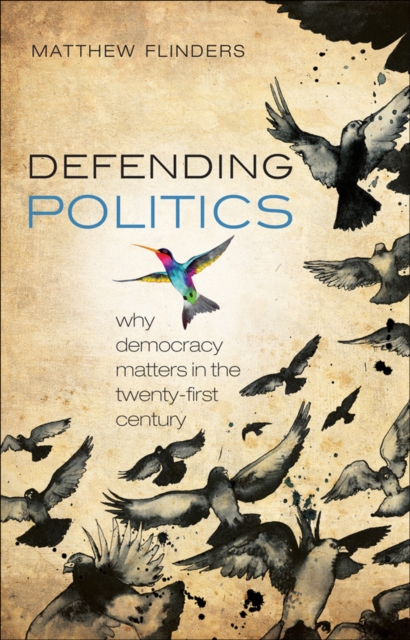
Defending Politics : Why Democracy Matters in the 21st Century EPUB
by Matthew Flinders
EPUB
Description
If the twentieth century witnessed the triumph of democracy then something appears to have gone seriously wrong.
Citizens around the world have become distrustful of politicians, sceptical about democratic institutions, and disillusioned about the capacity of democratic politics to resolve pressing social concerns.
This shift in global attitudes has been explored in a vast body of writing that examines the existence of 'disaffected democrats' and 'democraticdeficits'.
Defending Politics meets this contemporary pessimism about the political process head on.
In doing so, it aims to cultivate a shift from the bland and fatalistic 'politics of pessimism' that appears to dominate public life towards a more buoyant and engaged 'politics of optimism'. Matthew Flinders makes a highly unfashionable but incredibly important argument of almost primitive simplicity: democratic politics delivers far more than most members of the public appear to acknowledge and understand.
If more and more people are disappointed with what modern democratic politics delivers then is it possible that the fault lies with those who demand too much, fail to acknowledge the essence of democratic engagement and ignore the complexities of governing in the twentiethcentury rather than with democratic politics itself?
Is it possible that the public in many advanced liberal democracies have become 'democratically decadent' in the sense that they take what democratic politics delivers for granted?
Would politics be interpreted as failing a little less if we all spent alittle less time emphasising our individual rights and a little more time reflecting on our responsibilities to society and future generations?Democratic politics remains 'a great and civilizing human activity... something to be valued almost as a pearl beyond price in the history of the human condition', as Bernard Crick stressed in his classic In Defence of Politics fifty years ago.
But it is also a far more fragile system of governing than many people appear to realize.
By returning to and updating Crick's arguments, this book provides an honest account of why democratic politics matters and why we need to reject thearguments of those who would turn their backs on 'mere politics' in favour of more authoritarian, populist or technocratic forms of governing.
In rejecting fashionable fears about the 'end of politics' and daring to suggest that the public, the media, pressure groups, academics and politicians are all part of theproblem as well as part of the cure, this book provides a fresh, provocative, and above all optimistic view of the achievements and future potential of democratic politics.
Information
-
Download - Immediately Available
- Format:EPUB
- Publisher:OUP Oxford
- Publication Date:25/04/2012
- Category:
- ISBN:9780191623738
Other Formats
- PDF from £25.72
Information
-
Download - Immediately Available
- Format:EPUB
- Publisher:OUP Oxford
- Publication Date:25/04/2012
- Category:
- ISBN:9780191623738






